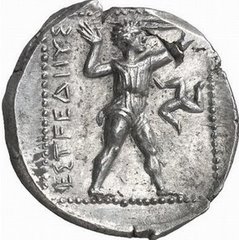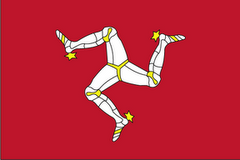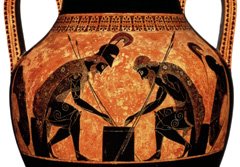STRUGGLE FOR CHANGE IN ENGLAND (Christopher Hampton) between 1381 and 1914. We quote from page 17 in the INTRODUCTION: -
"All these are people who saw to it as imperative to come to the defence of the people, and who recognised that, though they could do little on their own to bring about the necessary changes, nevertheless for them, as for Byron,
Words are things, and a small drop of ink
Falling like dew upon a thought produces
That which makes thousands, perhaps millions, think.
The year 1381 seemed a natural starting-point for this book, not only because of the first great popular uprising driven by rational collective will towards equality, freedom and common wealth, but because (being this) it points forward towards the socialist revolutionary movements which have defined the social changes of the last two hundred years.
Of course the pattern of English life in the Middle Ages has to be seen in terms of hierarchic orders of the feudal system under which the common people lives as slaves, the chattels of of their masters. Though people had begun to question the authority of the Catholic Church, it was still a major factor for them in a world constantly threatened with war, famine, disease and periodic disorder. But at the same time the kings and their advisers were pursuing secular policies in keeping with their own arrogant autocratic view of the state and its subjects.
In the late fourteenth century agriculture was the basis of England's economy, and wool the chief export; and with the organisation of the cloth trade, and the expansion of wool which brought into being large scale increases in enclosures, these years were to become the breeding-ground of English capitalism. It might even be said that the ruinous Hundred Years' War, which started in the mid-century as a squabble for plunder and dynastic influence, was also an attempt to keep the markets open. But whatever the advantages of these developments in the agrarian economy, they brought widespread distress and disorder to the lives of the common people, already unsettled by the decimation of the Black Death, and burdened with the taxes of state and Church. It was in this context of growing unrest (recorded in the statutes) that the uprising of 1381 occurred, incited by such travelling preaches as John Ball, who agitated against the negligence of the Church with calls for the establishment of a Christian democracy which defines an early form of socialist ideas.
It is clear that the people were in a mood seething resentment, not only against the paying of tithes to the greedy extortioners of the Church, whose income was said to be 'five times more than is paid to the king from the whole produce of the realm', but also against the state taxes. And quite suddenly, though with promptitude and unity that suggests careful preparation, the people refused to pay, and the revolt began.
For this was much more than a dispute about money. Its millenarian aims were a fundamental challenge to the whole social structure and its long-established ideology of enslavement; for they asserted the right of all men to freedom and equality. Not only that; men are prepared to die for them. And so, although this revolt against thraldom seems to have been almost immediately denied, to the become little more than a pre-condition for new kinds of enslavement - the enslavement of the wage-earner selling his labour - it represents an indispensable step forward in the contradictory struggle for progress.
This early record of the radicalism and heresy of the common people remains incomplete because, as I have already suggested, few could read or write. They talked, discussed and argued unrecorded. And it was no doubt as a result of the oral transmission of the ideas that revolts occurred such as those of 1413-14 in Buckinghamshire, 1414 in Essex and 1414 in London. John Ball's arguments that 'we are all sons of Adam, born free, is rooted in the scriptures; and the struggles of the people against their masters have to be registered in the context of the religious disputes of the age. The radicalism of the fifteenth century, that is, would continue to have been nourished through the Lollard followers of Wycliffe by the Christian vision of justice. Religion and politics acted upon each other. It was through the teachings of Christ that men sought to change society, very often against the official priests and bishops in their wealth and pride, and the coercive powers of the Church itself.
Things may not have changed by 1450 at the bitter end of the Hundred Years' War; but with the country almost bankrupt and the Wars of the Roses about to start secular issues must have been paramount. BY 1516, when More wrote Utopia, the more purely class nature of the rulers had become apparent, together with the economic exploitation (again through the enclosures) of the landless peasantry, of whom More writes with such passionate feelings as the cheated producers of wealth. This was now an age of monarchical absolutism., which by 1549 (year of the Norfolk Revolt, another peasant's uprising) gone part of the way towards refreshing the vast wealth of the feudal Church to the Crown. But the fundamental issues of taxes and tithes, and the great enclosures for sheep, remained a crushing burden under which the people were to continue to react in scattered revolt against their rulers.
The rising capitalist class that had been testing its strength and accumulated its own wealth during the Elizabethan age was of course to become the main revolutionary force in the seventeenth century, led by Cromwell and the Grandees and Parliament against the feudal power of the monarch. And this class was to make sure that the instrument it had created for its conquest of power, the New Model Army, would function in its own interests, the interest of these new men of property, rather than in the interests of the theoretical freedoms proclaimed for the Commonwealth.
Nevertheless, any understanding of the driving forces behind revolutionary theory and practice in seventeenth-century England has to take account of the heretical Christian doctrines upon which so many of its greatest radicals made their challenge and sought to transform their world. If England was 'to be first restorer of buried truth', as Milton and the revolutionary leaders believed, the struggle for that truth and for a just society, with the 'foundation firmly laid of a free commonwealth', was considered inseparable from the great issues of the Christian debate. Though it is of course true that the underlying thrust of seventeenth-century civil strife turned upon economics, the self-interest of the middle class, the ambitions of the army generals and the defence of property, this debate was part of the ferment of ideas that was ongoing on everywhere, among the labourers, the villagers, the artisans, men and women, the common soldiers, encouraged by the upheavals of the time, the danger, confusion and excitement of war. For the whole country was aroused, and it really must have felt as if the world had turned upside down. Radical sects sprang up almost overnight - Quakers, Ranters, Seekers, Fifth Monarchists, Baptists, accompanied by a flood of pamphlets, questioning and probing all accepted tenets, cutting across the lines of religion and politics. And the army was restlessly on the move, formulating its Leveller principles, appointing its agitators, urged into debate and revolt by men like Lilburne, Overton and Walwyn. But perhaps the most radical ideas and actions of all came from the Diggers. For though the Diggers had hardly any influence and quickly disappeared, their conception of the Commonwealth, as systematically defined in the writings of Winstanley and embodied in the actions of the colonies, rejected the whole basis of a capitalist economy, 'the power of enclosing land and owning property', and urged universal equality. 'If the waste land of England were manured by her children,' Winstanley believed, 'it would become in a few years the richest, the strongest and most flourishing land in the world.'
But this was not, and could not have been, the way things turned out. The men of property were in control, the land was 'other men's rights' and, as Winstanley could see, this had been organised to ensure the triumph of those who would once again make England a prison and its laws the 'bolts and bars and doors of the prison' to deprive the poor of their rights.
"All these are people who saw to it as imperative to come to the defence of the people, and who recognised that, though they could do little on their own to bring about the necessary changes, nevertheless for them, as for Byron,
Words are things, and a small drop of ink
Falling like dew upon a thought produces
That which makes thousands, perhaps millions, think.
The year 1381 seemed a natural starting-point for this book, not only because of the first great popular uprising driven by rational collective will towards equality, freedom and common wealth, but because (being this) it points forward towards the socialist revolutionary movements which have defined the social changes of the last two hundred years.
Of course the pattern of English life in the Middle Ages has to be seen in terms of hierarchic orders of the feudal system under which the common people lives as slaves, the chattels of of their masters. Though people had begun to question the authority of the Catholic Church, it was still a major factor for them in a world constantly threatened with war, famine, disease and periodic disorder. But at the same time the kings and their advisers were pursuing secular policies in keeping with their own arrogant autocratic view of the state and its subjects.
In the late fourteenth century agriculture was the basis of England's economy, and wool the chief export; and with the organisation of the cloth trade, and the expansion of wool which brought into being large scale increases in enclosures, these years were to become the breeding-ground of English capitalism. It might even be said that the ruinous Hundred Years' War, which started in the mid-century as a squabble for plunder and dynastic influence, was also an attempt to keep the markets open. But whatever the advantages of these developments in the agrarian economy, they brought widespread distress and disorder to the lives of the common people, already unsettled by the decimation of the Black Death, and burdened with the taxes of state and Church. It was in this context of growing unrest (recorded in the statutes) that the uprising of 1381 occurred, incited by such travelling preaches as John Ball, who agitated against the negligence of the Church with calls for the establishment of a Christian democracy which defines an early form of socialist ideas.
It is clear that the people were in a mood seething resentment, not only against the paying of tithes to the greedy extortioners of the Church, whose income was said to be 'five times more than is paid to the king from the whole produce of the realm', but also against the state taxes. And quite suddenly, though with promptitude and unity that suggests careful preparation, the people refused to pay, and the revolt began.
For this was much more than a dispute about money. Its millenarian aims were a fundamental challenge to the whole social structure and its long-established ideology of enslavement; for they asserted the right of all men to freedom and equality. Not only that; men are prepared to die for them. And so, although this revolt against thraldom seems to have been almost immediately denied, to the become little more than a pre-condition for new kinds of enslavement - the enslavement of the wage-earner selling his labour - it represents an indispensable step forward in the contradictory struggle for progress.
This early record of the radicalism and heresy of the common people remains incomplete because, as I have already suggested, few could read or write. They talked, discussed and argued unrecorded. And it was no doubt as a result of the oral transmission of the ideas that revolts occurred such as those of 1413-14 in Buckinghamshire, 1414 in Essex and 1414 in London. John Ball's arguments that 'we are all sons of Adam, born free, is rooted in the scriptures; and the struggles of the people against their masters have to be registered in the context of the religious disputes of the age. The radicalism of the fifteenth century, that is, would continue to have been nourished through the Lollard followers of Wycliffe by the Christian vision of justice. Religion and politics acted upon each other. It was through the teachings of Christ that men sought to change society, very often against the official priests and bishops in their wealth and pride, and the coercive powers of the Church itself.
Things may not have changed by 1450 at the bitter end of the Hundred Years' War; but with the country almost bankrupt and the Wars of the Roses about to start secular issues must have been paramount. BY 1516, when More wrote Utopia, the more purely class nature of the rulers had become apparent, together with the economic exploitation (again through the enclosures) of the landless peasantry, of whom More writes with such passionate feelings as the cheated producers of wealth. This was now an age of monarchical absolutism., which by 1549 (year of the Norfolk Revolt, another peasant's uprising) gone part of the way towards refreshing the vast wealth of the feudal Church to the Crown. But the fundamental issues of taxes and tithes, and the great enclosures for sheep, remained a crushing burden under which the people were to continue to react in scattered revolt against their rulers.
The rising capitalist class that had been testing its strength and accumulated its own wealth during the Elizabethan age was of course to become the main revolutionary force in the seventeenth century, led by Cromwell and the Grandees and Parliament against the feudal power of the monarch. And this class was to make sure that the instrument it had created for its conquest of power, the New Model Army, would function in its own interests, the interest of these new men of property, rather than in the interests of the theoretical freedoms proclaimed for the Commonwealth.
Nevertheless, any understanding of the driving forces behind revolutionary theory and practice in seventeenth-century England has to take account of the heretical Christian doctrines upon which so many of its greatest radicals made their challenge and sought to transform their world. If England was 'to be first restorer of buried truth', as Milton and the revolutionary leaders believed, the struggle for that truth and for a just society, with the 'foundation firmly laid of a free commonwealth', was considered inseparable from the great issues of the Christian debate. Though it is of course true that the underlying thrust of seventeenth-century civil strife turned upon economics, the self-interest of the middle class, the ambitions of the army generals and the defence of property, this debate was part of the ferment of ideas that was ongoing on everywhere, among the labourers, the villagers, the artisans, men and women, the common soldiers, encouraged by the upheavals of the time, the danger, confusion and excitement of war. For the whole country was aroused, and it really must have felt as if the world had turned upside down. Radical sects sprang up almost overnight - Quakers, Ranters, Seekers, Fifth Monarchists, Baptists, accompanied by a flood of pamphlets, questioning and probing all accepted tenets, cutting across the lines of religion and politics. And the army was restlessly on the move, formulating its Leveller principles, appointing its agitators, urged into debate and revolt by men like Lilburne, Overton and Walwyn. But perhaps the most radical ideas and actions of all came from the Diggers. For though the Diggers had hardly any influence and quickly disappeared, their conception of the Commonwealth, as systematically defined in the writings of Winstanley and embodied in the actions of the colonies, rejected the whole basis of a capitalist economy, 'the power of enclosing land and owning property', and urged universal equality. 'If the waste land of England were manured by her children,' Winstanley believed, 'it would become in a few years the richest, the strongest and most flourishing land in the world.'
But this was not, and could not have been, the way things turned out. The men of property were in control, the land was 'other men's rights' and, as Winstanley could see, this had been organised to ensure the triumph of those who would once again make England a prison and its laws the 'bolts and bars and doors of the prison' to deprive the poor of their rights.


